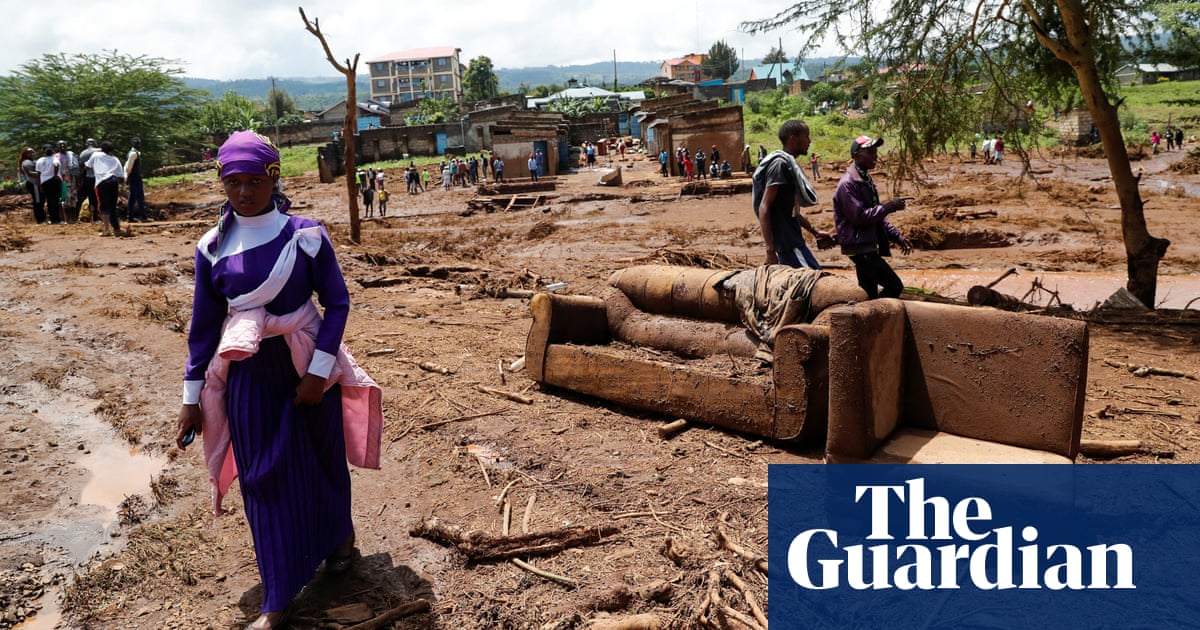
Storms and heavy rain have laid bare the scale of the destruction wreaked by massive fires on the Greek island of Evia, with communities now having to deal with flooding and mudslides.
After a summer of record temperatures igniting unprecedented wildfires across Greece, authorities in affected regions have now been put on the defensive as the nation is hit by a second bout of severe weather in less than a week.
“We’ve already seen unusual amounts of rain in some parts of the country,” said Dr Kostas Lagouvardos, a research director at the National Observatory of Athens. “But from Thursday we expect this [new] weather system will create a very dangerous situation, especially in burned areas where the soil is already saturated and streams are overflowing.”
An estimated 300,000 acres of forest and bushland were incinerated in Greece over the summer amid temperatures that hit 47.1C, the highest on record.
More than a third of the devastated area was in northern Evia, according to the national observatory. In recent weeks communities have been in a race to construct flood barriers to compensate for lost forest cover, with authorities clearing riverbeds and people piling sandbags around their homes.
However, for many the storms have already been calamitous: more than 200 houses were damaged at the weekend as heavy rain and widespread flooding made roads impassable, sending mudslides cascading down mountains now devoid of vegetation into the sea.
“The situation is dramatic. A mountain of mud has been removed from the village,” said Giorgos Tsapourniotis, the mayor of Mantoudi, likening the scenes to a biblical catastrophe. “We have hundreds of calls to pump out water from homes.”
By Thursday as the storms reached Athens, ripping masonry from the Greek parliament and in some cases forcing children to be evacuated from schools, the weather service had issued a red alert warning people to avoid any unnecessary movement. Heavily forested areas north of the capital were also decimated by wildfires in August.
“What we are witnessing is the loss of critical ecosystem services that forests provide,” said Demetres Karavellas, who heads WWF Greece, noting that the Evia wildfire was the biggest ever recorded in Greece. “The natural ability of the soil to withhold water, to act as a flood control mechanism, has been destroyed across a massive area.”
The Mediterranean has been singled out as a wildfire hotspot, with forest fires erupting from France to Turkey over the summer. Scientists agree that the climate crisis is partly to blame for creating the conditions that make forests more vulnerable and floods easier. With temperatures hotter than they had been for 30 years, bone-dry terrain had been transformed into a tinderbox fuelling hundreds of fires “in every corner of the country”, the Greek prime minister, Kyriakos Mitsotakis, said at the time.
Without assistance from more than 20 countries deploying firefighters and water-dropping planes, emergency services would not have been able to cope.
Karavellas said there was “a sense of deja vu” with fires of ever-growing ferocity being recorded because of poor forest management policies and lack of follow-up after the blazes.
“The key issue here is prevention. We have to stop such fires happening in the first place by moving from a paradigm of suppression to prevention with whatever that entails,” he said. “If we were ill-prepared in the past, there is no excuse now.”











